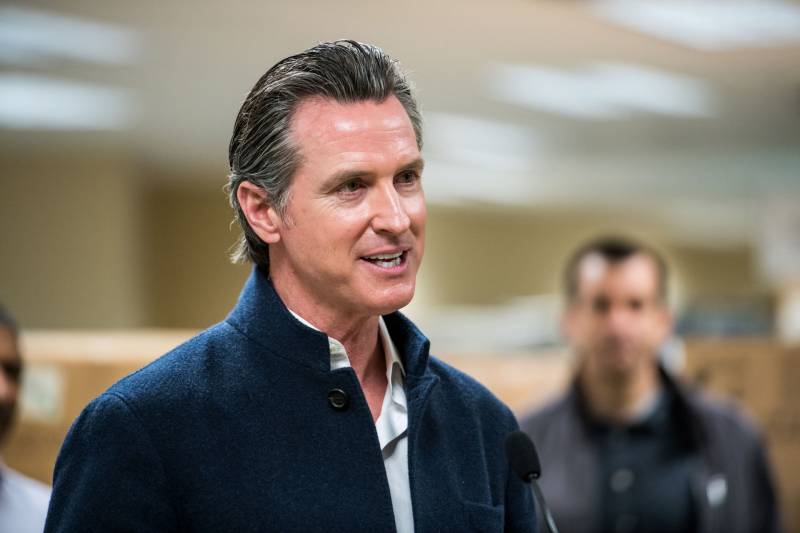According to the California Department of Finance, households earning up to $75,000 in adjusted gross income will be eligible for the new round of stimulus checks, with an extra $500 for families with children.
“The middle class has been hurt hard by this pandemic,” Newsom said at a press conference in Oakland. “They’ve been squeezed across the spectrum.”
The spending is made possible by a historic windfall in tax revenue: Newsom revealed on Monday that his administration is projecting a $75.7 billion budget surplus.
Cash from the surging U.S. stock market, along with the $26 billion the state recently received from the $1.9 trillion federal American Rescue Plan, have flooded California’s coffers to a point that could not have been imagined when the COVID-19 pandemic began last year and the stock market tanked.
The announcement marks a stunning budgetary turnaround that comes as Newsom faces a statewide recall over criticism of his handling of the pandemic and as the pandemic-delayed deadline for filing income taxes approaches.
At this time last year, lawmakers faced a $54 billion shortfall as they crafted the state’s spending plan, thanks to the soaring costs of the pandemic and sinking revenues as unemployment spiked and businesses closed.
Since then, the stock market has risen faster than an Elon Musk spaceship, with companies like Apple, Facebook and Tesla pumping out huge profits.
“It’s a remarkable turnaround,” Newsom added.
In addition, hundreds of companies have used the Wall Street surge to make initial public offerings (IPOs) of their stock in hopes of riding the wave of investor optimism, minting hundreds of new millionaires in the process.
“Because of California’s very progressive tax structure, and because most of our revenue comes from the wealthiest … we have money,” said state Sen. Nancy Skinner, D-Berkeley, the Senate’s budget chair. “Now, unlike other states, we are using the money to support the many Californians who’ve been hurt during this pandemic.”

